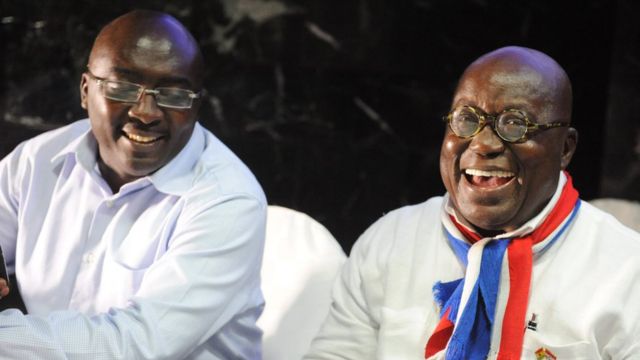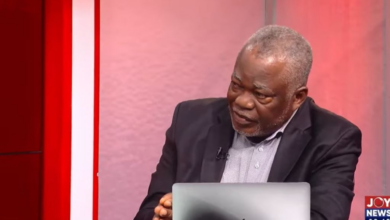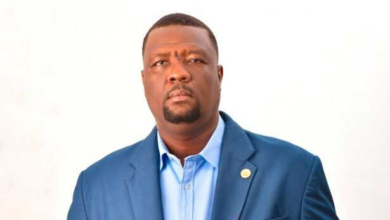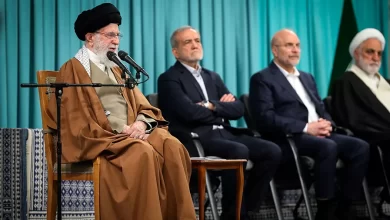
President Nana Addo Dankwa Akufo-Addo has been serving as the President of Ghana since January 7, 2017. His leadership has been marked by significant achievements, challenges, and controversies. Akufo-Addo’s presidency is shaped by his legal background, political career, and the socio-economic dynamics of Ghana. Under his leadership, Ghana has experienced substantial growth, but also faced several challenges, including a high fiscal deficit and volatile food inflation.
Despite the National Democratic Congress (NDC) losing the fiercely contested 2016 election to the New Patriotic Party (NPP), the Akufo-Addo administration has struggled with internal party cohesion. This fragmentation has led to the emergence of breakaway factions and independent candidates competing in the upcoming national elections, scheduled for December.
Galamsey Controversies and Environmental Concerns
One of the most pressing issues during Akufo-Addo’s presidency has been the “galamsey” (illegal mining) crisis. Public outcry over the environmental devastation caused by illegal mining has led to significant criticism of the government’s handling of the issue. Environmentalists, civil society groups, and concerned citizens have raised concerns that the government’s efforts to combat galamsey have been insufficient, and corruption within the mining sector has undermined progress.
Several scandals have emerged involving high-ranking members of the ruling NPP, including the “Shama Galamsey Scandal,” which implicated some government officials in illegal mining activities. These incidents have eroded public confidence in the government’s ability to tackle the problem effectively.
Critics argue that the government has not demonstrated enough political will to eliminate galamsey, citing internal conflicts and competing interests as major hindrances. Many are calling for President Akufo-Addo to take more direct action to enforce environmental regulations and end illegal mining.
Voter Apathy and Election Risks
As Ghana heads toward the December 7th elections, concerns about voter apathy, protest votes, and potential political violence are mounting. Many citizens, disillusioned by the government’s handling of key issues, may resort to expressing their dissatisfaction through abstention or angry ballots, which could contribute to a politically charged atmosphere and potential instability if not addressed.
Leadership Stewardship: Assessing the Akufo-Addo Administration
To better understand the impact of President Akufo-Addo’s leadership, it’s important to examine key areas where his administration has had a significant influence:
- Economic Growth and Development
Economic Growth: Under Akufo-Addo, Ghana initially experienced impressive economic growth. In 2017, the country achieved an 8.5% growth rate—one of the highest in sub-Saharan Africa. This was attributed to improved management of the economy, favorable global commodity prices, and growth in sectors like agriculture, mining, and oil. However, this growth followed a period of economic recovery under former President John Dramani Mahama, whose leadership laid the groundwork for Ghana’s recovery before the 2016 election.
Industrialization & “One District, One Factory” (1D1F): The “One District, One Factory” policy, a flagship initiative aimed at industrializing Ghana by establishing factories in each of the country’s 216 districts, sought to create jobs and boost local economies. However, the policy has faced criticism for slow implementation, inefficiency, and allegations of mismanagement. Many argue that it has yet to live up to its potential in terms of job creation and economic impact.
Free Senior High School (SHS): Akufo-Addo’s administration introduced free secondary education (Free SHS), eliminating tuition fees for public senior high schools. This initiative was hailed as a major step toward improving access to education. However, concerns about the quality of education and overcrowding in schools have emerged, with many parents facing additional financial burdens due to deficits in infrastructure funding and support services.
Economic Challenges: Despite early successes, Akufo-Addo’s administration has faced significant economic challenges, including rising debt levels. Ghana’s public debt reached over 70% of GDP by 2020, raising concerns about fiscal sustainability. The COVID-19 pandemic exacerbated these financial strains, leading to an economic downturn and increased pressure on the government’s budget.
- Leadership and Governance: The Role of President Akufo-Addo and Dr. Bawumia
Despite Ghana’s economic growth, President Akufo-Addo’s leadership has faced criticism for a perceived failure in certain aspects of governance:
Poor Decision-Making and Lack of Vision: One criticism of the Akufo-Addo administration is its inability to adapt to changing circumstances. Many argue that the government has been reactive rather than proactive, particularly in addressing long-term issues like unemployment and the structural problems within the economy. This lack of foresight has led to unpopular and short-term policies that have failed to address underlying problems.
Corruption and Misuse of Power: Corruption within the government, particularly in sectors like mining, has undermined public trust. Reports of embezzlement and cronyism, where political allies receive preferential treatment for government contracts, have deepened skepticism about the administration’s commitment to transparency and accountability.
Ineffective Communication and Accountability: The government has struggled with effective communication, especially in articulating its policies to the public. Polarizing rhetoric, failure to engage with opposition voices, and attempts to suppress dissent have further damaged the credibility of the administration. Public grievances, including those related to the handling of galamsey, have often been ignored or mishandled.
Polarization and Partisanship: The political climate in Ghana has become increasingly polarized. Instead of fostering unity, President Akufo-Addo’s leadership has been marked by partisanship and a lack of collaboration with opposition groups. This has led to gridlock in the legislative process and made it difficult to pass reforms that could benefit the country.
Weak Political Institutions and Governance: Ghana’s democratic institutions, while generally strong, have been weakened under Akufo-Addo’s leadership. Allegations of undermining judicial independence and political interference in the judiciary have raised concerns about the erosion of checks and balances within the political system.
- Structural Issues in Governance
Failure to Address Structural Economic Problems: The inability to effectively tackle long-standing issues such as public debt, inflation, and income inequality has led to widespread dissatisfaction. Despite early economic growth, Ghana still faces significant structural challenges that require systemic reforms, not just short-term fixes.
Lack of Leadership Succession Planning: Another issue is the lack of a clear leadership succession plan. In some democracies, the failure to groom future leaders or create a culture of institutional continuity can lead to instability when a leader leaves office or faces challenges.
Conclusion: The Road Ahead for Ghana’s Democracy
President Akufo-Addo’s tenure highlights the complexities of democratic governance in a rapidly changing political environment. While his leadership has brought certain achievements, such as economic growth and educational reforms, it has also exposed significant challenges in governance, accountability, and party cohesion. As Ghana heads into the December 7th elections, the nation will face crucial decisions about its future leadership. Whether President Akufo-Addo’s government can overcome its challenges and maintain public trust remains to be seen, but it is clear that the country’s democracy is at a crossroads, with both internal and external pressures shaping the political landscape.
Story by Alexander Kukah




